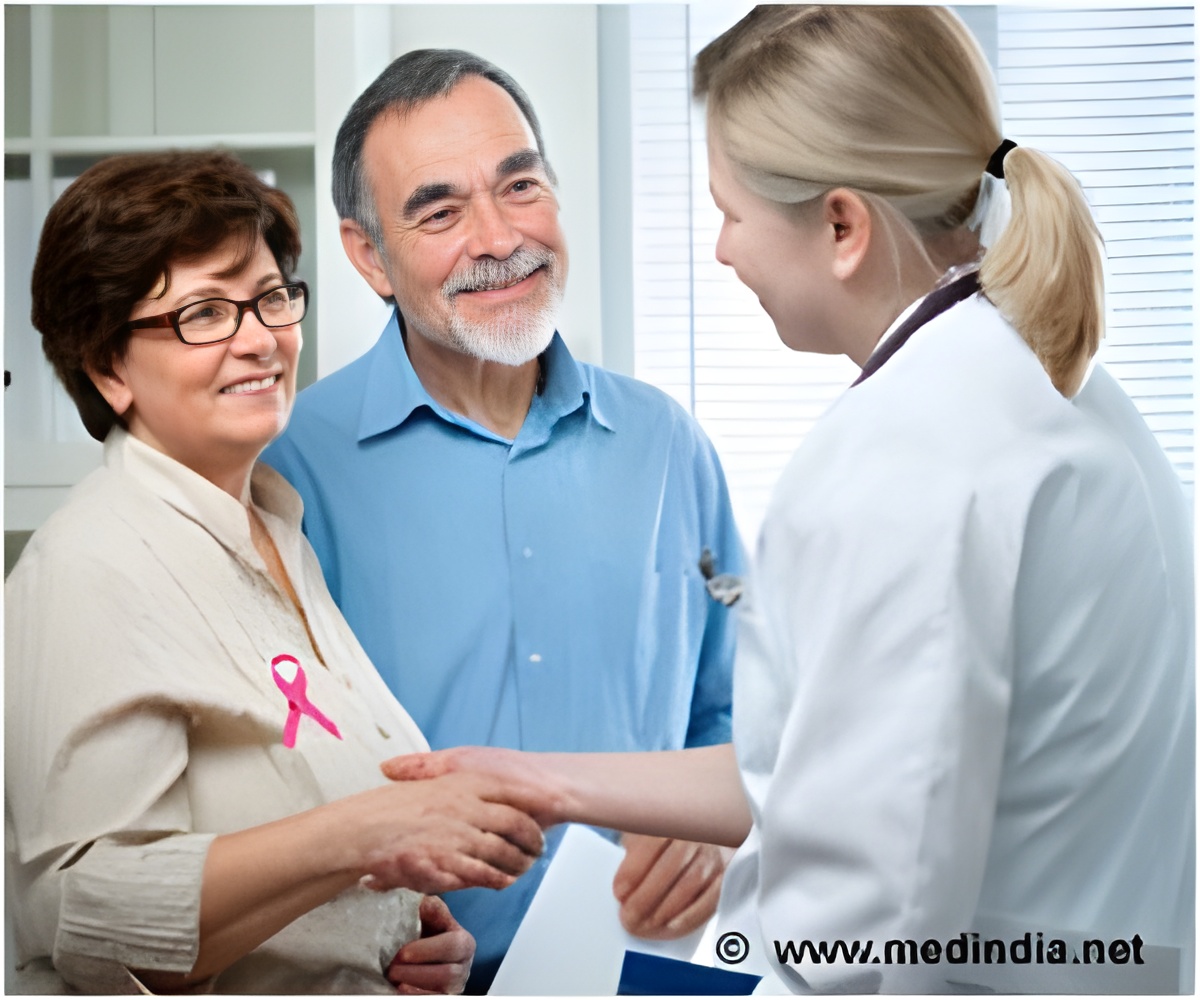According to researchers elderly women with early-stage breast cancer live longer with radiation therapy and surgery compared with surgery alone.

For women who had radiation and a lumpectomy, the overall survival rate was 88.6 percent at five years, 65 percent at 10 years and 39.6 percent at 15 years. That compares with a survival rate of 73.1 percent at five years, 41.7 percent at 10 years and 20 percent at 15 years for women who only had surgery. The median survival was 13 years for patients receiving surgery and radiation, compared with 9.9 years for patients receiving surgery alone. The researchers don't know how many of the women also received hormonal therapy.
"Our findings suggest that adjuvant radiation therapy should be strongly considered as part of the treatment regimen for otherwise healthy elderly women with early ER-positive breast cancer," Dr. Cohen says. "A woman's age alone should not dictate whether or not radiation is recommended."
The senior author, Steven J. Feigenberg, M.D., an associate professor of radiation oncology at the University of Maryland School of Medicine and a researcher at the University of Maryland Greenebaum Cancer Center, notes that the data also showed that the use of adjuvant radiation decreased as the women grew older. Eighty percent of women age 70-74 received radiation compared with 61 percent of women age 80-84.
"Breast radiation is the standard of care following lumpectomy for early-stage breast cancer, but previous research suggested that it helped to prevent the cancer from returning in the treated breast but has no impact on survival in older women," Dr. Feigenberg says. "As a result, some elderly women may not have been offered radiation therapy as part of their breast cancer treatment. We wanted to look at a large, population based database to determine if radiotherapy does offer some benefits in terms of survival, and we found that it does."
Breast cancer patients typically have radiation treatments five days a week for six weeks following surgery, to prevent the cancer from recurring.
Advertisement
The researchers analyzed data from the SEER (Surveillance, Epidemiology and End Results) registry, which is maintained by the National Cancer Institute. They identified 29,949 women, from 70 to 84 years old, who were diagnosed with early-stage (T1 N0 M0) ER-positive breast cancer between 1990 and 2009 and had limited surgery. Seventy-six percent of the patients also received adjuvant radiation.
Advertisement
The researchers attributed the improved outcomes with surgery and radiation to better "locoregional control" of the cancer. They also noted that patients selected to receive radiation may have been healthier with a longer anticipated life expectancy than those who did not receive radiation.
Source-Eurekalert














